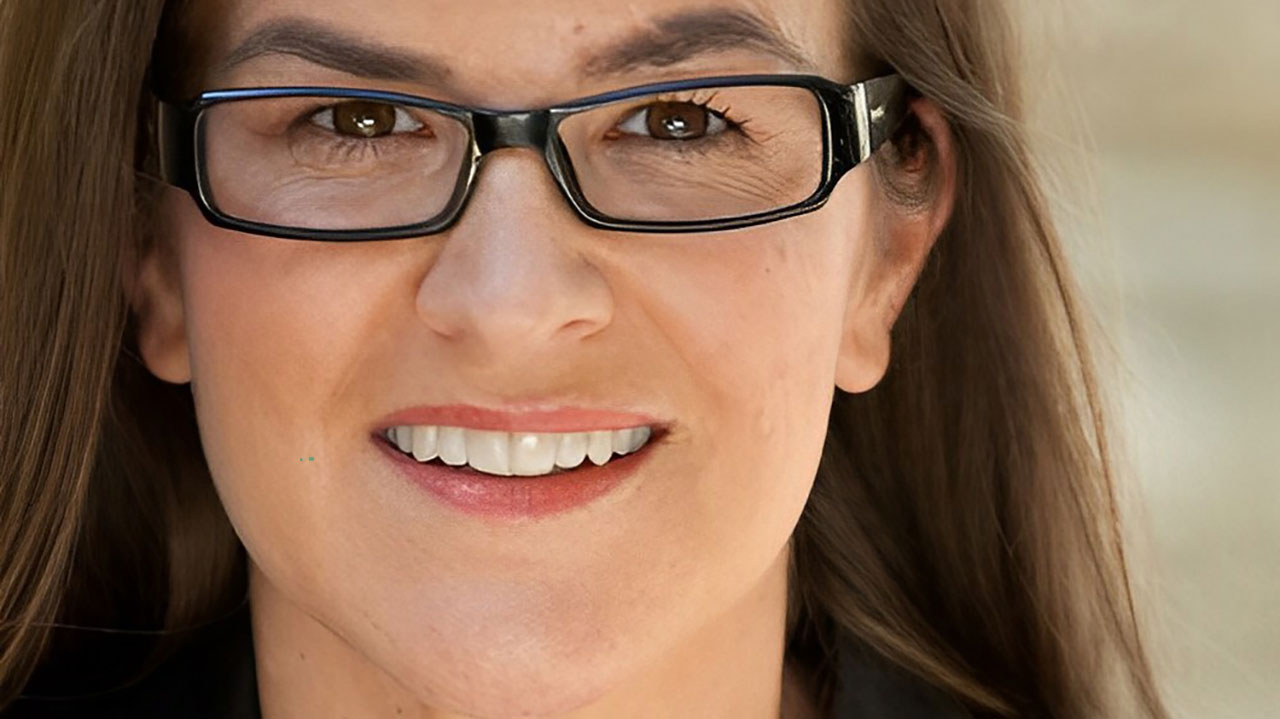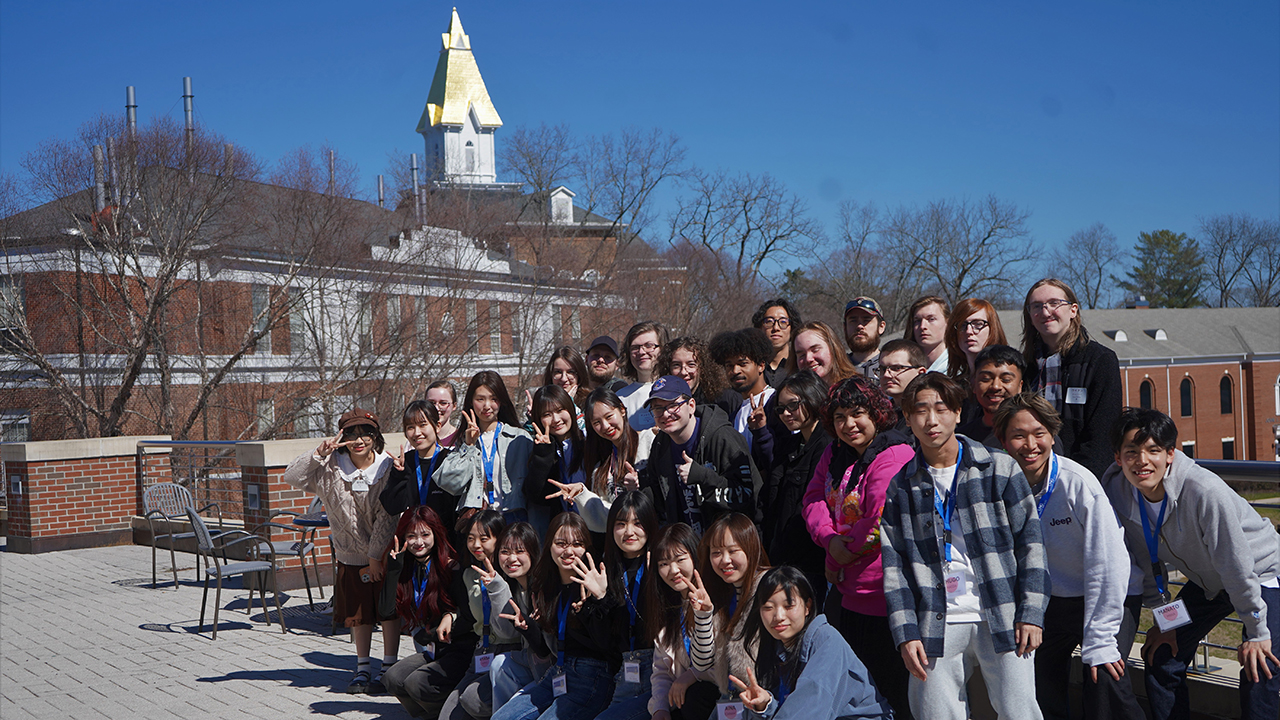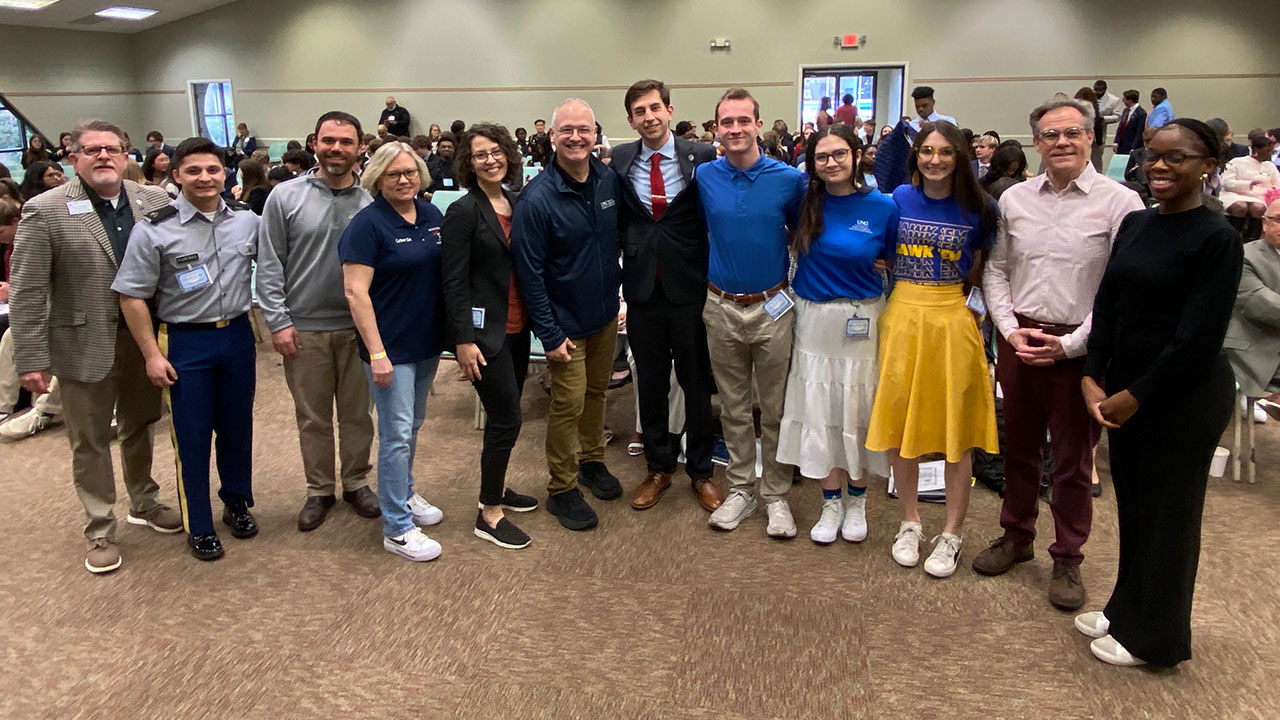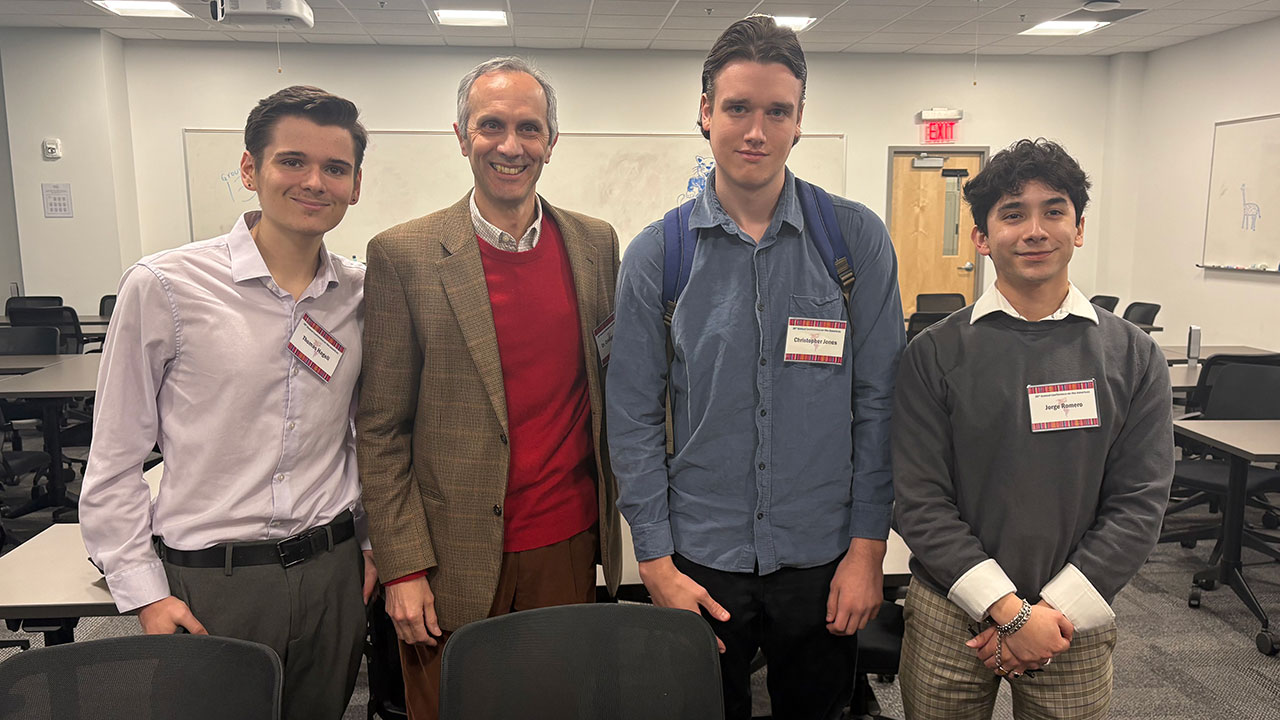UNG signs partnership agreement with Argentine University

Article By: Staff
The University of North Georgia (UNG) entered into a new partnership with the Argentine University of Defense (UNDEF) with a signing ceremony held Feb. 5 at UNG's Dahlonega Campus.
The agreement was signed by UNG President Bonita Jacobs and Gonzalo Álvarez, president of UNDEF, in a ceremony attended by faculty and administrators from both institutions as well as special guest Maj. Gen. Joe Jarrard, the adjutant general for Georgia.
"The one thing our two institutions have in common is academic excellence with a strong focus on the military," Jacobs said. "It's especially important for our military students to learn different languages and different cultures, because that's the only way we can begin to understand each other."
In 2016, Georgia applied to become a state partner to Argentina under the State Partnership Program (SSP) and was selected by Congress in December 2016 over several other states to partner with Argentina. An initial engagement meeting between UNG and UNDEF took place in March 2017. With the SSP as a framework, UNG participated with the UNDEF delegation to make initial contact in the area of academic outreach, to include civilian and cadet exchange.
The UNDEF delegation, which included Álvarez, Brig. Gen. Carlos A. Podio, vice president of UNDEF; Brig. Gen. Agustín Cejas, director of Argentine Military College; and Martin Bertone, director of UNDEF’s international office, attended a briefing on the history of UNG and the Corps of Cadets and toured the Dahlonega Campus earlier.
"When universities such as ours have shared ideas and a strong will to make them happen, it will lead to a deeper and stronger relationship between our institutions and our countries," Álvarez said. "We are committed to a long and beneficial relationship."
UNDEF was formed in 2014 through the consolidation of Argentina's Air Force High Studies Institute, the Navy High Studies Institute and the Army High Studies Institute. UNDEF is charged with training military and civilian students in seven different disciplines, as well as military training for national defense through undergraduate, graduate and postgraduate courses. It has an enrollment of 12,000 graduate and undergraduate students.
To date, UNDEF joins over 60 international partners around the world to provide academic and military cooperation to UNG students and cadets. UNDEF is the seventh military academy partnership for UNG. The agreement will allow those in the Corp of Cadets to take classes in professional military education, leadership, and opportunities for military mountaineering and tactical training.
As one of only six federally designated senior military colleges in the nation, UNG is the Military College of Georgia, and its leadership development experiences have earned it designation as a state leadership institution by the University System of Georgia Board of Regents.



